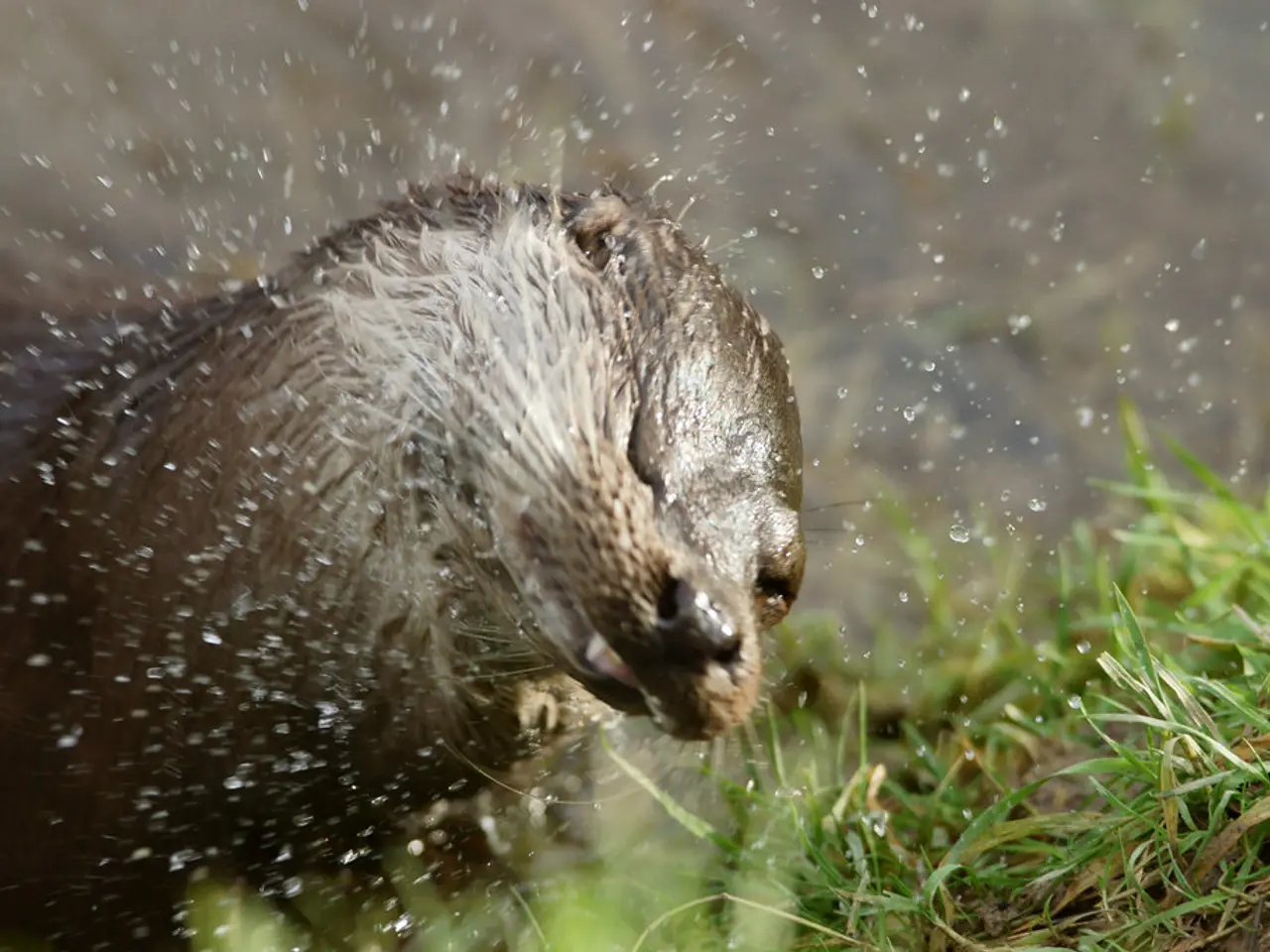VGH halts fish-otter hunting once more
In a recent development, the Bavarian Administrative Court (VGH) in Munich has halted administrative orders for the killing of otters, reinforcing the strong legal protection for these protected species in Germany.
The decision comes after the VGH confirmed a decision by the Administrative Court in Regensburg in an expedited procedure. This move is a response to the new regulation by the state government that came into force in spring 2022, aiming to restrict the spread of otters. The regulation, however, has been criticized for not providing enough concrete figures on the otter population.
The Bavarian Administrative Court's ruling is significant, as it emphasizes that a main procedure must still be conducted in Regensburg. This means that no otters may be killed during the main procedure. The VGH also halted an administrative order for the killing of otters in Upper Franconia, following a lawsuit filed by the Bavarian Nature Conservation Initiative.
Wolfgang Epple, a biologist from the Bavarian Nature Conservation Initiative, has warned that the pursuit of otters in Bavaria could amount to constant hunting, potentially violating European law. Epple also stated that Bavaria has a backlog in legal compliance in species protection.
The judges criticized the Upper Palatinate authority for providing far too few concrete figures on the otter population, highlighting the need for more accurate data in decision-making processes.
It is important to note that the Eurasian otter (Lutra lutra) is a protected species under the EU Habitats Directive and German Federal Nature Conservation laws, which Bavaria also enforces. Hunting or killing otters is generally prohibited except under very strict conditions, such as for population control or to prevent significant damage, and these exceptions usually require administrative authorization.
Repeated court rulings against administrative orders permitting otter killings suggest that courts have upheld strong legal protection for otters, limiting or overturning such orders. This indicates that the current legal status strongly favors otter protection, with lethal control allowed only in exceptional and legally rigorous cases, if at all.
For precise and updated legal status, including specific recent court rulings, consultation of Bavarian state wildlife regulations and recent court decisions would be necessary. However, the prevailing situation is that otter hunting remains largely illegal or highly restricted due to wildlife conservation laws and judicial oversight.
- The ruling by the Bavarian Administrative Court underscores the importance of environmental-science data in political decision-making processes, as the court criticized the lack of concrete figures on otter populations.
- The general-news of court rulings against otter killings in Bavaria highlights the increasing stringency of laws in the field of science, especially environmental-science, in protecting otters, reinforcing their status as a protected species.








